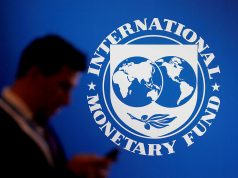POGOs have insufficient AML, CTF awareness, regulation — study
PHILIPPINE OFFSHORE Gaming Operators (POGOs) have low defenses against dirty money transactions, according to a risk assessment done by the Anti-Money Laundering Council (AMLC).
In its attempt to conduct on-site compliance checking on POGOs, the dirty money watchdog found POGOs have yet to create anti-money laundering/counter-terrorism financing (AML/CTF) compliance units.
“The POGOs have no AML/CTF compliance units…there is a low level of AML/CTF awareness and regulation,” AMLC said in a study released on Tuesday.
The AMLC said compliance officers of POGOs could not be found and contacted in their provided addresses.
The study also found non-compliance of some POGOs with existing AML regulations, including the appointment of a local gaming agent.
“A foreign-based operator is required to appoint a local gaming agent, who will represent the said foreign-based operator in the Philippines,” AMLC said, noting these local agents are in charge of completing the documentary requirements during the application for gaming operations.
The AMLC also found that the offices of some POGOs, local gaming agents, and authorized representatives are not located in addresses they registered with the Philippine Amusement and Gaming Corp. (PAGCOR). Instead, their service providers (SPs) are the ones maintaining an office in the said addresses.
PAGCOR has clarified that SPs should be distinguished from POGOs, as SPs only offer services needed by POGOs including gaming software, and content streaming, among others.
With these findings, AMLC concluded there is a low level of AML/CTF awareness in the POGO sector.
“Generally, POGOs and IGLs (interactive gaming licensees) are a lesser threat compared to their SPs,” AMLC said.
The agency said insufficient AML/CTF regulations in POGO service providers is a “jurisdictional issue” as SPs are only merely accredited and not licensed by PAGCOR.
Meanwhile, POGOs are jointly supervised by the PAGCOR and AMLC in terms of their AML/CTF measures as they are considered casinos, which are covered by the 2017 amended version of the Anti-Money Laundering Act of 2001.
The AMLC also concluded there has been an increasing level of dirty money threats and fraudulent activities from the POGO industry.
“The number of investigations involving domestic Internet-based casino operators and SPs is growing. From 2017 to 2019, the recorded casino-kidnapping-related incidents totalled 63 cases,” the AMLC said.
The agency’s sectoral risk assessment, which was based on suspicious transaction reports from 2013 to 2019, found that the estimated value of suspicious transactions in this period amounted to P14.01 billion.
“Considering the high level of vulnerability risk to money laundering of Internet-based casinos, a collective mitigation strategy with concrete actions must be applied to SPs and Internet-based casino operators,” the AMLC said.
The sectoral risk assessment, which forms part of the study, covered the 59 POGOs under PAGCOR’s watch, 218 SPs, and three gaming laboratories as well as the Cagayan Special Economic Zone’s 24 interactive gaming licensees and 18 interactive gaming support service providers. — L.W.T. Noble



